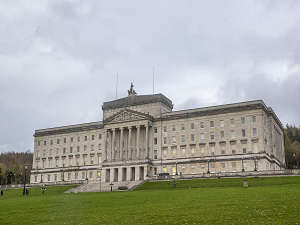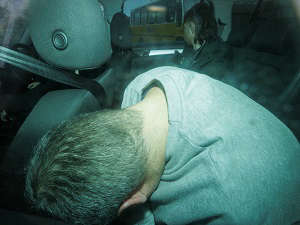
The ongoing failure to address legacy issues in Northern Ireland will be high on the agenda as political leaders meet in Belfast.
Stormont's First Minister Arlene Foster and Deputy First Minister Martin McGuinness will hold talks with Secretary of State James Brokenshire and Irish Minister of Foreign Affairs Charlie Flanagan at Stormont House.
Northern Ireland Justice Minister Claire Sugden will also take part in the quarterly review meeting to assess the implementation of the Stormont House and Fresh Start agreements.
While progress has been made in a number of areas since the 2014 and 2015 deals, a row continues to stymie the establishment of new mechanisms to deal with Northern Ireland's toxic past.
Proposed mechanisms to address the needs of victims and an accompanying multimillion-pound Government funding package are stuck in the starting blocks owing to a wrangle linked to the potential non-disclosure of UK state papers on national security grounds.
The package agreed by Stormont leaders and the UK and Irish governments, which includes a new investigations unit, a truth recovery mechanism, an oral history archive and enhanced funding for Troubles-related inquests, will not become reality until the logjam is cleared.
The national security dispute is primarily between the UK government and Sinn Fein. However, the Democratic Unionists are refusing to sign off on the funding boost for legacy inquests until all the other issues are sorted.
Ahead of Wednesday's review meeting, Mr Brokenshire said: "These quarterly meetings are an important mechanism to drive forward close working towards implementing the Fresh Start and Stormont House Agreements. The UK Government remains committed to full and faithful implementation of both agreements, including the establishment of the new institutions to address the legacy of the past."
"Good progress has been made on implementing the agreements. This includes legislation on welfare reform, a Joint Agency Task Force to tackle cross-border organised crime, an Executive strategy to disband paramilitary groups and a new Independent Reporting Commission to report on progress towards ending paramilitary activity.
"We are working closely with the Executive and the Irish Government on outstanding commitments. Constructive work continues between the UK Government, the Northern Ireland Executive and the Irish Government, with progress on the outstanding points in relation to legacy. There is still work to do, and everyone in the current process must play their part."
"Delivering these is essential for building a brighter, more secure future for Northern Ireland - where politics works, the economy is strong and society is more united, freed from the malign impact of paramilitary activity and associated criminality."


 ‘Much more to do’ to protect children in NI from sexual exploitation – report
‘Much more to do’ to protect children in NI from sexual exploitation – report
 Woman in critical condition after she's struck by car in Belfast
Woman in critical condition after she's struck by car in Belfast
 Man dies following road accident in County Fermanagh
Man dies following road accident in County Fermanagh
 Executive will ‘have to deal’ with compensation costs from PSNI data breach
Executive will ‘have to deal’ with compensation costs from PSNI data breach
 Man remanded in custody charged in connection with mosque burning plot
Man remanded in custody charged in connection with mosque burning plot